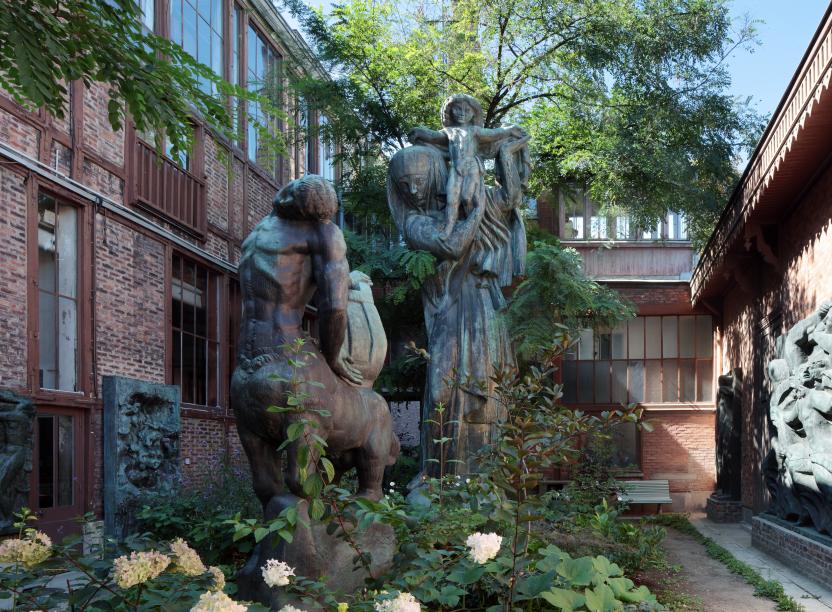Antoine Bourdelle's Medusa Head was created for the Maison Fontaine, a decorative hardware company founded in 1740. In the 1920s, Jean-Arthur Fontaine wanted to modernise the products made by the family business. He commissioned renowned sculptors to create models of locks, door knockers and knobs for his wealthy, sophisticated customers. He publicised the commissions in the press. At a time when the use of doorbells had become widespread thanks to electricity, the door knockers designed by Bourdelle, Aristide Maillol, Joseph Bernard and Paul Jouve were above all works of prestige rather than utilitarian objects.
As Bourdelle explained to the art critic Arsène Alexandre in an illustrated letter dated 20 October 1925, Theseus' hand grasps the Gorgon's head by its hair of snakes. The knocker is lifted by a hanging braid and when it falls, the head hits the hero's shield. The writhing hair, with its solid yet sinuous contours, playing with hollows and protrusions, contrasts with the serenity of the finely modelled face, with eyes closed as though to protect us from its petrifying gaze.
Exhibited in the Fontaine Pavilion at the 1925 Exposition Internationale des Arts Décoratifs, then at the Le Cuivre et le Bronze Modernes exhibition at the Musée Galliera in 1926, the sculpture was particularly admired. One critic considered that “we would have to go back to 16th century Italy to find an object, not similar, but parallel.” Its image was widely reproduced in the press and used to illustrate the modern period in Henri Clouzot's 1934 book Les Arts du Métal. A few years after the artist's death, Elie Faure recalled Bourdelle's studio, from where the image of the Gorgon sprang, “I can still see a bronze door knocker with a hand grasping the snakes on Medusa's head, in which the flexibility of a Quattrocento craftsman's sword marries with the solidity of an old French blacksmith's materials.” (Translated from French)
Valérie Montalbetti Kervella

Don't miss any news from the Bourdelle Museum.
Subscribe to our monthly newsletter